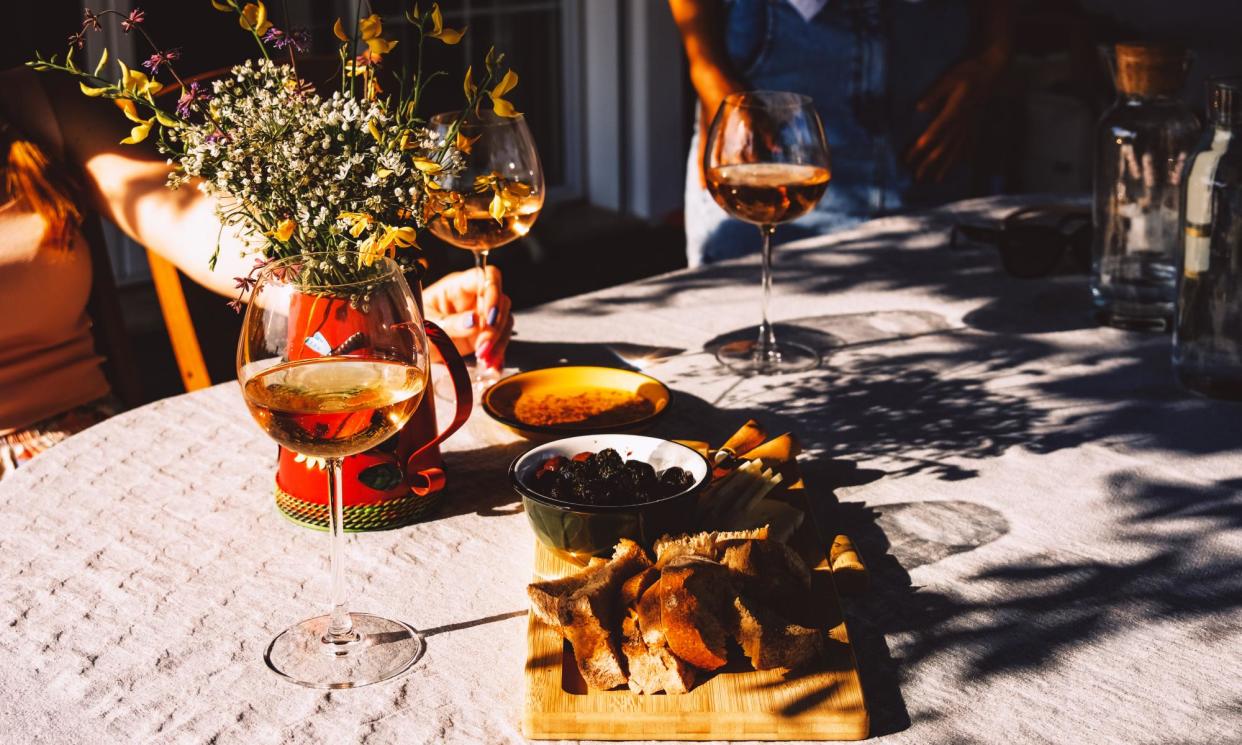Why muscat is a must when it comes to summer

Domaine des Bernardins Muscat de Beaumes de Venise, Rhône, France 2023 (£14.90, 37.5cl, tanners-wines.co.uk) Deep in the Mediterranean southeastern corner of France in the Southern Rhône Valley, Domaine des Bernadins is one of those impossibly charming family-run wineries that are the heart and soul of French wine. Romain Hall, the fifth generation of the family to make wine at the domain, works amid a higgledy piggledy mishmash of tanks and barrels in his cosy cellar, which sits by a graceful house and garden filled with aromatic plants and flowers that could very easily have been the subject of an impressionist painting from around the time the winery was founded (from money made in the silkworm trade of all, improbably romantic things) in the mid-19th century. The domaine makes a wonderfully evocative Côtes du Rhône red called La Balme: light on its feet (and in colour) and filled with notes of lavender and cherry. But it’s perhaps best known for its work with a local speciality: sweet, delicately floral-scented fortified wines made from muscat grapes.
Carte Or Muscat de Beaumes de Venise, Rhône, France NV (£8.99, 37.5cl, Waitrose) Muscat de Beaumes de Venise is made by fermenting the famously aromatic muscat à petits grains grapes grown in sandy-soiled vineyards in the Beaumes de Venise appellation. Before all the sugar turns to alcohol, the winemaker adds some neutral grape spirit: the yeast is overwhelmed by the sudden influx of alcohol, and the fermentation stops. This process, known in French as “mutage”, leaves a fortified wine of 15% alcohol (the same as a dry sherry such as fino) but with the floral and fresh fruit aromas still very much intact and with around 120g of sugar per litre of wine. In France, this style used to be a very popular aperitif. In the UK, it’s always been sold as more of a dessert wine. Domaine des Bernardins’ version, with its pithy tang of orange zest, rose petals and stone fruit, would add an extra summery dimension to fruit desserts and blue cheese; so, too, the good-value, Carte d’Or.
Domaine des Schistes Muscat de Rivesaltes, France 2022 (from £18.20, aduv.co.uk; cambridgewine.com) The Rhône isn’t the only region producing what the French call “vins doux naturels” from fragrant muscat: you can also find it on the other side of the country, in and around the village of Rivesaltes near Perpignan towards the Spanish border in Roussillon. As with Muscat de Beaumes de Venise, the process leaves a wine that’s full of summer-garden full bloom flowers and fruit: apricots, peaches and, of course, muscat grapes, as in the delightfully refreshing version from Domaine des Schistes. In these monomaniacally wellness-driven times, it’s hardly surprising that France’s sweet muscats, with their double whammy of calories from the extra alcohol and sugar, are not nearly as popular as they were 20 or 30 years ago, all the more so when you consider that they were commonly consumed with a delicacy that’s even further beyond the pale: foie gras. But, if there’s a better way of whiling away a warm summer’s evening than with a bowl of strawberries, some creme fraiche and a glass of sweet muscat, I’ve yet to find it.
Follow David Williams on X @Daveydaibach


